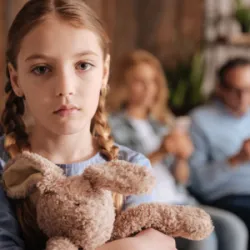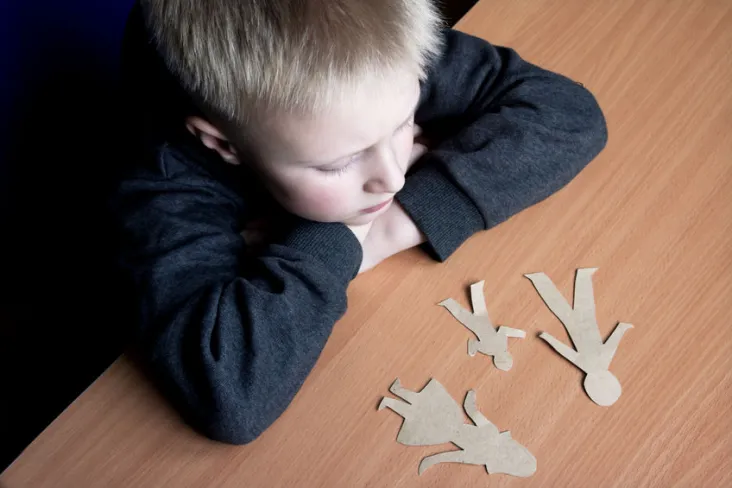
Divorce is never easy. When the divorce involves children and which parent they should live with, it often becomes more difficult and complex.
In some cases, even though you initially worked out an amicable custody arrangement during your divorce proceedings, you may find things are not working out as expected and discover that you need to modify the agreement.
Knowing what to expect can help to ensure that you make the right decision as you navigate your way through the child custody agreement process.

The Basics of Child Custody Laws in Georgia
Like most of the child custody laws established in other states, Georgia has its own particular set of factors that a judge typically follows to help determine how custody should be awarded whenever a couple who has children decides to separate.
While laws can sometimes vary from state to state, the courts in Georgia, like the courts in other states, will always consider first the best interests of any children that are involved before making a custody determination.
When it comes to Georgia child custody laws there are two types of custody that you should know about:
Legal Custody: This type of custody is used to define which parent has the right to make decisions in regards to a child’s upbringing.
The Georgia court system tends to favor awarding joint legal custody to both parents as joint custody gives both parents a say in the upbringing of their children.
It is important to note, however, that section 19-9-1 of the family law code, also provides for one parent to have “veto power” over the other parent. What this means is that while each parent has the right to a say when making major life decisions about a child, such as what school they will attend, religion they will practice, or what types of extracurricular activities they may or may not participate in, one parent will have the final say if there is an impasse and the parents cannot agree.
Physical Custody: This type of custody refers to which parent the child will live with. When the parents have joint physical custody, both parents have agreed that they will have equal or nearly equal time and contact with their child.
This could mean that the child spends one week with one parent and one week with the other parent, or stays with one parent during the school year and the other parent while the child is out of school.
Although this is something that the court can certainly agree to, it is not common for a judge to agree to joint physical custody unless it is established that the parents are in complete harmony about the arrangements.
Instead, it is more likely that a judge will deem one parent as the primary custodian and the other parent as secondary physical custodian.
How the Judge Makes Their Decision
Depending on the circumstances, the judge may order joint legal custody, but not joint physical custody, or the other way around. The judge could also order that the parents share both types of custody.
While each case is different, the court typically takes several factors into account when deciding which type of custody is awarded and to whom.
- Who has been the primary caretaker for the child?
- The physical and mental health of the parents.
- Which parent can offer the child more stability?
- The bond between the child and the parents.
Modification of Child Custody Order
Although it is always best if parents can work in unison to arrive at a custody arrangement that works well for both parties, often this is sadly not the case.
As family law attorneys in Canton, we have seen our share of divorce proceedings where the decision for child custody was one of the most contentious issues either parent had to face. Many times, neither parent is prepared to give up time with his or her child.
Fortunately, if it becomes apparent that there has been a significant change in either the parent’s or child’s life, the child custody order can be changed.
Modification of Parenting Time or Visitation
In the State of Georgia, in addition to the child custody order which establishes legal and physical custody, the order will establish a visitation schedule or parenting time for the non-custodial parent. The order will specify how the primary parent will share the physical custody of the child with the non-custodial parent.
After the initial child custody order has been entered, a parent may ask the court to modify visitation or parenting time once every two years. If a parent is seeking to increase his parenting time but not change the designation of the physical custodian, the parent that asks for a visitation modification does not have to demonstrate a change in circumstances to ask for this change.
This means that if a parent is initially given only a short period of time each month to visit their child, they could ask for additional parenting time or they could ask that they have visitation on a certain holiday or a specific week each year. The court’s decision to add or decrease visitation time will ultimately be guided by what is in the minor child’s best interests.
Modification of Custody Order
Unlike a parent asking for a simple modification for parenting time or visitation, an actual change in the designation of the primary parent may only be requested when there has been a material change in the family’s circumstance that has occurred since the ruling on the original order.
The court generally defines a material change as a major life event for the family. A move out of state or a significant distance from their current home by the parent with primary custody is a significant change. In addition, a significant change of circumstance could also include the discovery that one of the parents is using illegal drugs or abusing alcohol, or that there is suspected child abuse or that the parent has been arrested or is involved in illegal activity. Finally, remarriage by one parent or an election by the child to live with the other parent can be a material change that warrants a modification of the prior parenting plan or custody order.
When reviewing the request to modify the child custody order, the court would then look at these circumstances and make a decision as to whether it is in the best interest of the child to change the initial order for custody.
Child Request to Change Custodial Parent
In addition to the reasons listed above, children who are 14 years of age or older may also have the ability to request a change of custodial parent. This request does qualify as a valid circumstance for a custody re-evaluation.
While the judge will heavily consider the child’s preference as to which parent they wish to live with, they will also evaluate whether such a change is in the best interest of the child.
If it is not readily apparent as to whether this preference is in the best interest of the child, the court may appoint a guardian ad litem who will then work to represent the child’s interest during the modification request.
Are You Looking for a Canton Family Law Attorney?
Whether you are facing a divorce and worried about losing custody of your child or you have questions about modifying your initial child custody order, an experienced family law attorney can help.
At Speights Law in Canton, we not only can help answer your questions about family law, we will be your strongest advocate in court. Contact us today at (770) 749-1500 to schedule your consultation. We’re here and ready to help.



